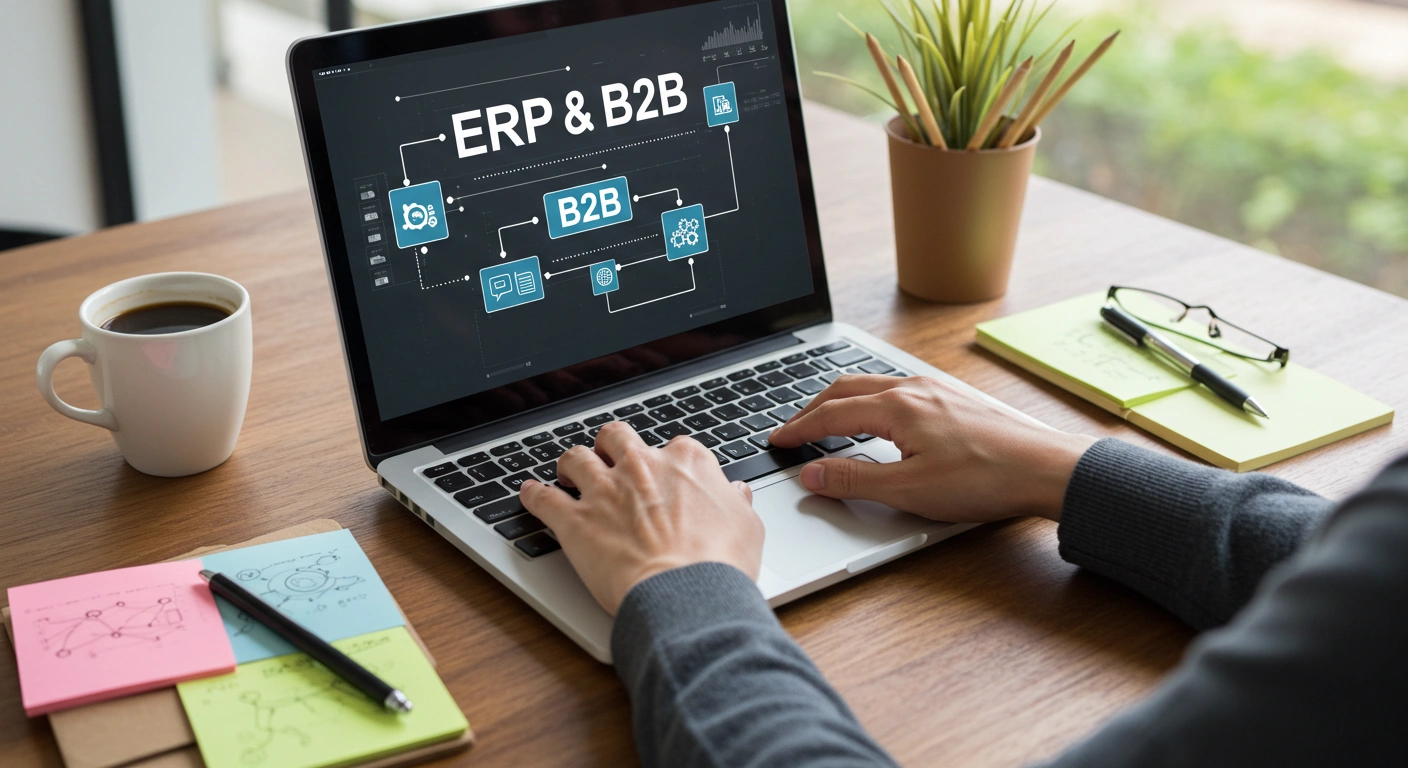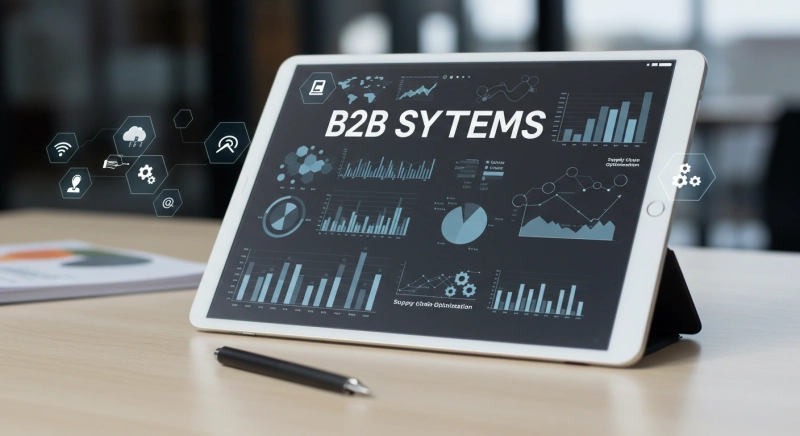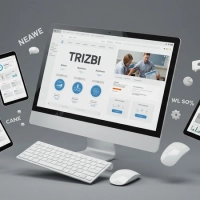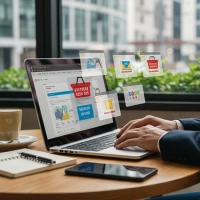
B2B (Business-to-Business) systems are powerful tools that digitize and optimize commercial transactions between businesses. ERP (Enterprise Resource Planning) software plays a critical role in managing systems more effectively and increasing operational efficiency.
What is a B2B System?
B2B systems are digital platforms used to manage the flow of products, services, and information between businesses. They allow businesses to manage their operational processes more effectively.
B2B System Basic Features

B2B ERP system is a comprehensive solution that allows businesses to effectively manage their dealer, distributor and customer processes. It optimizes business processes by offering many advantages from automation to data integration, cost savings to risk management. Here are the main features of the B2B ERP system:
- Automation: Separating dealer, distributor and sub-dealer processes via the website and automatically managing them, making discount and price definitions easy.
- Data Integration: Real-time data sharing between all parties, from current payments to product and sub-product management, from multiple warehouse systems to shipping processes.
- Cost Savings: Fast response to development requests with support packages, reducing costs by optimizing processes by reducing manual operations.
- Risk Management: Risk monitoring through open accounts and secure transactions during sales processes to the first user.
- Operational Management: Uninterrupted management of operations by viewing all products with categories on a single screen, performing warranty and serial tracking, and monitoring production and shipping processes.
Differences Between B2B and B2C
The main differences between B2B (Business-to-Business) and B2C (Business-to-Consumer) business models are clearly evident in the target audience, transaction volume and decision-making processes. While B2B focuses on commercial transactions between businesses, B2C offers products or services directly to individual consumers. This difference significantly shapes the functioning and strategies of both models.
B2B typically involves larger-scale transactions, involving high-value commercial relationships such as bulk purchases or long-term contracts, while B2C focuses on smaller-scale, often one-off sales to individual consumers.
In terms of the decision-making process, B2B is generally more complex. This process involves a detailed evaluation process that requires approval from multiple departments and decision-makers. In contrast, in B2C, decisions are often made individually and more quickly, with consumer behavior and emotional factors playing a decisive role in this process. These differences lead to the need for different marketing and operational strategies for both business models.
What is ERP Software?
ERP software is an integrated system that allows businesses to manage their resources efficiently. It brings together different modules such as finance, human resources, production and logistics under one roof.
What are the ERP B2B System Modules?

B2B ERP systems consist of various modules that allow businesses to manage their operations in an integrated and efficient manner. The B2B ERP system offered by Trizbi also offers solutions for the needs of businesses with its comprehensive modules. The prominent modules are as follows:
- Financial Management: In addition to income, expense and budget tracking, it also provides integrated management of financial transactions. Financial situations are monitored instantly.
- Stock and Warehouse Management: This module, which allows the supply chain to be optimized, includes features such as product and sub-product management, multiple warehouse management, and warranty and serial tracking.
- Customer Relationship Management (CRM): Designed to use customer data more effectively, the CRM module includes functions such as dealer and sub-dealer tracking, discount and price definitions.
- Order and Dealer Management: Includes receiving, processing and tracking orders, and managing dealer relationships. It helps businesses manage their sales operations more effectively with features such as automating order processes and special pricing for dealers.
- E-Collection System: This system facilitates product purchases by making current payments, allowing dealers to make payments without orders and to follow their current accounts. It contributes to the regulation of cash flow.
- Risk Management: It ensures secure transactions in risk monitoring and sales processes to the first user via open account. It helps businesses minimize their financial risks and manage their receivables more effectively.
- Production Process Management: Allows businesses to optimize operations with functions such as production planning, material requirements and production tracking.
- Shipment Management: Ensures that products are delivered to customers on time and accurately. Increases the effectiveness of logistics operations with features such as shipment planning, tracking and return process management.
Trizbi's B2B system aims to increase the operational efficiency of businesses and provide competitive advantage through these modules.
Advantages of B2B System Management with ERP
Integrated B2B system management with ERP allows businesses to manage their processes more efficiently and in a more controlled manner. It provides a competitive advantage by automating workflows, strengthening data integration and reducing costs.
- Operational Efficiency: Workflows are accelerated through the automation of dealer, distributor and sub-dealer processes.
- Real-Time Data Integration: Stock, orders and financial transactions are tracked simultaneously.
- Risk and Payment Tracking: Secure trading is ensured with open account and e-collection features.
- Improving Customer Relations: With CRM integration, customer data is used effectively and sales processes are optimized.
- Cost Savings: Operational costs are reduced by reducing manual operations.
Things to Consider in B2B System Integration with ERP

ERP and B2B integration requires careful planning. Here are some key points to make the process easier:
- Choosing the Right Software: Choosing the right ERP and B2B software for your needs.
- Integration Process: Detailed planning of all stages of the project.
- User Training: Training of personnel for effective use of the system.
- Data Security: Secure transfer and storage of all data.
ERP and B2B System Usage in Türkiye
In Türkiye, businesses are rapidly adopting ERP and B2B systems to operate in a more efficient and organized manner in competitive market conditions. It is widely used in different sectors, especially with the need to digitalize operational processes and optimize workflows.
Sectors such as logistics, retail and manufacturing are the areas where ERP and B2B solutions are used most intensively. Functions such as management of supply chain processes in the logistics sector, stock and order tracking in retail, and resource planning in production are carried out more effectively thanks to these systems.
The success of ERP and B2B integration is evident in the tangible benefits it provides to businesses. Many businesses have increased their operational efficiency, reduced their costs, and gained competitive advantage by optimizing their business processes thanks to these systems. These success stories are also a source of inspiration for other companies.
You can find Trizbi's inspiring success stories here .
With the acceleration of the digital transformation process, demand for AI-based ERP systems and mobile-compatible B2B solutions is increasing in Türkiye. In the future, businesses are expected to develop smarter and more flexible business models by investing in these technologies. These trends will further advance the use of ERP and B2B systems in Türkiye.
Conclusion

B2B system integration with ERP software increases the operational efficiency of businesses while strengthening customer and supplier relationships. In an era where digital transformation is inevitable, this integration stands out as a strategic tool to increase the competitiveness of businesses. With a planned process and the right tools, businesses can invest in their future success.
To explore the use of ERP in different sectors, you can visit the Everything You Need to Know About Association Management System page.























